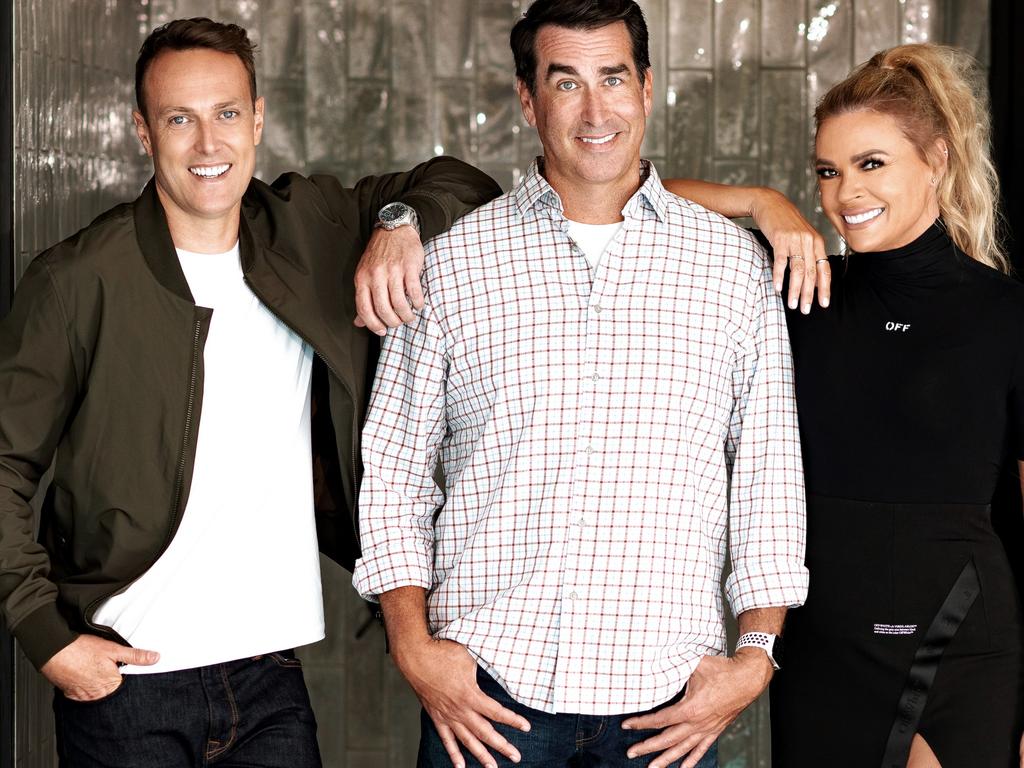Seven hopeful on future AFL night grand finals after ratings bonanza
Richmond’s win over Geelong on Saturday was the highest rating season-decider for four years.

Seven West Media executives have declared the first night AFL grand final a resounding success, and that the league should strongly consider an evening timeslot for the season-decider again next year and into the future.
Saturday night’s match averaged 3.81m viewers across metropolitan and regional markets, making it the highest-rating grand final in four years, and gave Seven such a boost in viewers that it now claims to have drawn level with rival Nine Entertainment in the 2020 ratings battle.
The national TV audience for Richmond’s 31-point win over Geelong at the Gabba in Brisbane was up 33 per cent on last year’s grand final and the number of viewers in locked down Melbourne — an average of almost 1.6m — was 60 per cent more than 2019 and the biggest grand final TV audience ever in the Victorian capital.
Saturday’s success will see Seven urge the AFL to consider a permanent move of its season-decider, traditionally held at the Melbourne Cricket Ground on the last Saturday afternoon in September, to a prime-time evening slot.
“It is about showcasing the biggest game of the year and where the audience is most available and that is at night,” Seven’s Melbourne managing director Lewis Martin told Media.
“I’d have to say visually it was spectacular. I don’t think there’s anything about (Saturday) night that people could possibly have any negativity about there being a night grand final.
“We will all sit down and we will look back on this year and look at what we will keep, and there will be a lot that we can take out of it. It will be one of the items on the agenda.”
Seven said it had a 76 per cent prime time commercial network share during the game, a record-setting ratings margin of victory. Its average Sydney audience of 383,000 was up 11 per cent from last year’s grand final, which featured the GWS Giants, and average ratings in Adelaide and Perth were up 14.3 per cent and 17.3 per cent respectively.
In Brisbane, Seven’s audience of 383,000 was the biggest since 2004.
“It was such a dynamic night, with pitch invasions, injuries to a big star of the game, a backdrop of dramatic weather. It just had everything,” said Mr Martin, of a match that was close until the last quarter, when defending champion Richmond pulled away to claim victory.
He said the grand final was the culmination of a year in which Seven had to cope with a season that was suspended in March due to COVID-19, before a constantly changing schedule that led to the AFL shifting most of the competition to Queensland.
“We usually have three or four exchanges (with the AFL) about the fixture list. This year we had 101 additions or changes. We had 85 per cent of our AFL broadcast capabilities in Melbourne, so it has been an interesting time, to say the least.”
Mr Martin said Seven’s AFL executives established what he called their “Apollo 13” project when the season was first suspended, having dozens of planning meetings on how to cope with shifting important staff interstate and broadcasting matches remotely.
Ten key employees quarantined to move to Queensland, including its “spider cam” operator — one of only two in Australia — and commentator Bruce McAvaney called matches from Seven’s Adelaide boardroom before moving to Brisbane two weeks ago.
“One cameraman Tony Bogovic, went from cameraman to producer for the Dreamtime game in Darwin.
“Abbey Holmes on special comments, she volunteered to go into quarantine. She said she lived like a backpacker, in and out of the Northern Territory, South Australia, WA, Queensland.
“Have microphone, will travel. It has been that kind of year.”






To join the conversation, please log in. Don't have an account? Register
Join the conversation, you are commenting as Logout